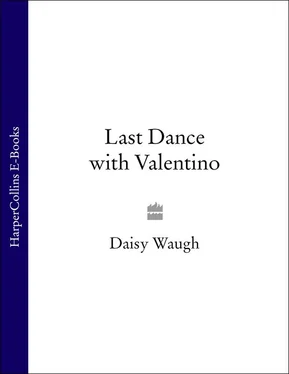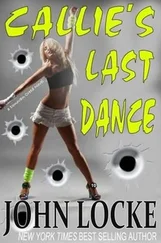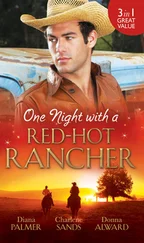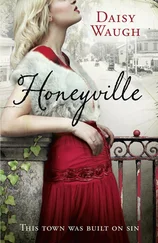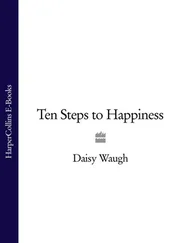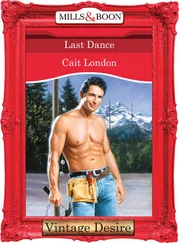He smiled rather weakly. ‘Thank you, Lola. You’re very kind.’
Papa used to call me Lola. I never knew why. He didn’t like the name Jennifer, I suppose. It’s why I chose it, of course. When the choice was mine.
‘But, Papa, you may find them alarming at first,’ I continued facetiously. ‘Mostly they are entirely fixated with the vote. So I read. Much more so than the average Englishwoman. You may have to become a “suffragist” if you’re to make any progress with the American girls.’
He laughed at that. Which thrilled me. He ruffled my careful, seventeen-year-old hair, which, I remember, thrilled me rather less. ‘Come with me, my silly friend,’ he said to me. ‘Come and entertain me, will you, Lola? While I get myself a little stinko.’
It was how we spent the voyage. It was how Papa and I spent the greater part of all our time together actually, once my brother had died – or since probably long before: since Mother died and Marcus was away at school and it was always just the two of us, on our own, with him a little stinko, and me trying my darnedest to keep his melancholy at bay.

Dear God, this heat! This sticky, dirty, airless warmth. So much is different since I left the city all those years ago, but the New York summers don’t change. They remind me of August at Roslyn. It reminds of everything I would most like to forget.
I am writing this in a wretched little café just a couple of blocks from my own flophouse . . . Oh, and what a come-down it is! The Ambassador Hotel has its own air-cooling system – of course. As one might expect of such an ultra fine and modern hotel. It lent Rudy and me a magic, secret climate of our own, up there in our private paradise. I had forgotten what the rest of Manhattan was enduring. – Not that I care! Nothing in the world could bring me down tonight—
Ah! The little dooge has come with my eggs at last. I thought I might die from hunger . . . devilled eggs and buttered toast . . . I never saw a more welcome sight! And more coffee, too. And I have asked him to bring me a large slice of chocolate cake and some fruit Jell-O. And some ginger ale and some vanilla ice cream. And more toast. Good God, I’m so hungry I could swallow the whole of it in a single mouthful then order it all again – except I’m not sure I have enough money in my purse.
Is he thinking of me?
Is he thinking of me now?
But if I continue along those lines I shan’t be able to eat a thing, and it’s hopeless, because I must or I shall probably faint in this dreadful heat. I’ve hardly eaten for days. It would be too horribly embarrassing.
I must keep writing. About the beginning – when Papa was still here, and it was only the two of us, thrown together on that great big ship, setting off to start our new life together.
It’s strange. I’ve not dwelled – purposely not dwelled – on the beginning, not for all these years, and yet suddenly, tonight, it comes to me in a rush, as vivid as yesterday. I remember what I was wearing – the little shirtwaist with the embroidered daisies at the buttonhole . . . I remember that, and how splendid I felt in it. I remember the feel of my new rabbit-skin stole, too hot for the day, but which I wore because Papa had only given it me the day before, when I was crying because we were leaving our home. (And I’m convinced, by the way, that he had always intended to give it to another girl entirely. He looked quite rueful as he handed it over.)
I remember what Papa was wearing, too. He was a handsome man: tall and slim and athletic-looking, with eyes of dark blue and thick, golden-brown hair – speckled grey, by then, I suppose, but always golden brown in my memory. I’ve said he was a handsome man: perhaps it’s an immodest moment to observe that he and I looked rather alike. We have the same colouring and similar build. The same nose – it looks better on a man – straight and long; the same square, determined jaw; the same dark blue eyes and angular face.
He was elegant – always. I remember the jaunty angle of his boater hat, and the familiar hint of his cologne as we stood side by side on that vast deck, and the smell of the crumpled pink azalea in his lapel. He had taken it from Chelsea at the crack of dawn that same morning, just as we were leaving our rented cottage for the last time – plucked it, with that roguish laugh, from the front garden of Mr Brampton next door. It was an act of half-hearted defiance, of course, of playfulness and sentimentality, which was somehow typical of my father. My wonderful, magical, wicked, feckless, faithless father. I miss him. God, I miss him still.
– – –
So, our vast ship slipped away from England and the war, and five days followed, surrounded by sea: long, strange, empty days they were; and while my father drank, and charmed our fellow passengers with his usual elegance and wit, I talked too much – couldn’t stop myself – and mostly sent them scurrying away.
The sixth morning dawned at last, not a moment too soon: Papa and I were setting each other on edge. I could feel his impatience – the suffocating coat of boredom that wrapped every word when he addressed me. And there was something else too, perhaps, now that I think about it. He had grown increasingly ill-tempered as the journey progressed. I would glimpse him sometimes, gazing at me as a prisoner might gaze at their jailer, as if culpability for everything – all his torment, all the little irritations of our journey, the sourness of his wine, pain in his toe, the ache in his heart and head – should be laid somehow at my door.
In any case I left him at his breakfast table that final morning, not eating, since he never much ate, mostly muttering to himself about the horridness of all things American. I left him alone and joined the other passengers on deck to catch a first view of land.
Oh! I will never forget it! That first thrilling glimpse of Manhattan – how it rose from the golden haze; glistening with boastfulness in the dawn light – it moved me in a way nothing in old England ever could . . . I had imagined ‘skyscrapers’; Father and I had discussed them at length (he detested the mere notion) but to see them in reality, soaring triumphantly against that pink morning sky, so proud, so ambitious, so completely extraordinary – I had never in my life seen a sight so beautiful. Even today they take my breath away.
My father, when he finally emerged on deck, decreed them ‘hideous’, just as I had known he would: ‘If the good Lord, in his infinite wisdom, had wanted us to live suspended in midair in that undignified fashion,’ he said, scowling across the water, ‘he’d have given us wings.’ After I failed to respond to that, Papa wandered back to his empty dining-table, I think, and I stayed where I was until we docked.
And then what? A blur of everything, I suppose: a whole lot of noise and energy and mad confusion . . . Papa coming to life at last, striding importantly off the ship as if poor, wretched New York couldn’t possibly be expected to survive without him a moment longer . . . And me, left behind again, organising our paltry luggage, coming ashore and searching desperately for him through the crowd.
It was a sweltering morning, and the pier was teeming; a monstrous, roaring jumble – or jungle, it seemed to me – of steam and smoke; motor-cars and carriages, porters, passengers and officials; and the clatter of horses’ hoofs and the spluttering of automobile engines, and above it all, the constant hammer and crash of construction, here and there and everywhere, and far off in the distance, from towering metal skeletons, there were little men, like insects in a spider’s web, riveting together more buildings to add to the madness of that crazy, beautiful skyline . . . So, we stood there, waiting, jostled this way and that: the failed English Portraitist, who drank too much, and the Failure’s daughter; I was mesmerised by the little men in their metal webs – I was mesmerised by it all. But, of course, I was lucky. I was young and – unlike my father – I had never really shone, so could never feel the shock of my insignificance quite as he must have felt it that morning. I think perhaps it frightened him, to feel so utterly, infinitesimally small.
Читать дальше
